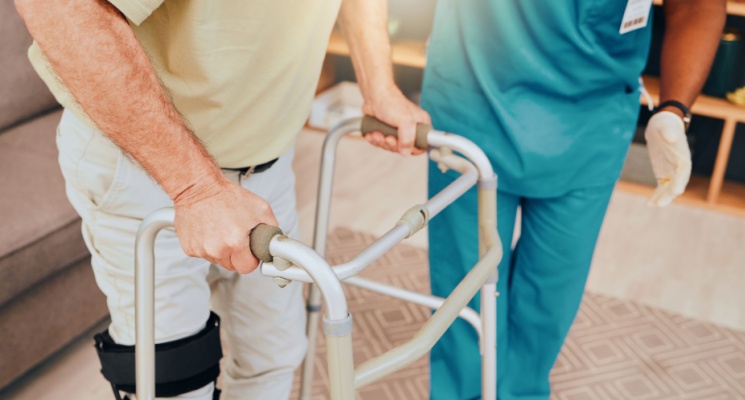Ever since the outbreak of the SARS-CoV-2 Pandemic, the openness to scheduling lab tests at home has increased in Dubai. Consequently, the volume of lab test appointments has declined. Patients are finding it safer and much more convenient to schedule a blood test at home than to visit a doctor’s clinic and sit in the waiting room. At-home blood sample collection is not just quicker and safer, but it’s also accurate!
When you suspect you might have food allergies, UTI, slugging metabolism, high cholesterol, or any other medical condition that requires attention, you can easily get a lab test done at home!
Type of Blood Tests at Home You Can Take in Dubai
Telehealth has made it possible to collect specimen samples of blood, saliva, stool, and urine from the patient’s home. Elderly patients or those who can’t make it to the clinic for sample collection can book a lab test in their home’s safe environment. At-home blood sample collection also puts those kids at ease who are afraid of the hospital’s setting.
The samples after collection are then taken to the testing laboratory for the physician’s analysis. The results of the tests are either mailed to the patient’s address or can be collected from the clinic. You can take a lab test at home for several medical conditions. Here are some lab tests that you can book at home:
1: Complete Blood Count Test (CBC)
As known to most, a CBC test checks the levels of ten different components of WBCs, RBCs, and platelets. You can book this home blood test to evaluate your overall health and detect infection or a disorder like anemia. The phlebotomist draws sample blood usually at the bend in your elbow and takes it to the lab for analysis.
2: Blood Pregnancy Test
You can also order a blood test at home in Dubai to confirm a pregnancy. The test conducted in this case measures the levels of hCG hormone in the blood. This test can confirm the presence of a placenta with greater accuracy and earlier in gestation compared to other pregnancy tests.
The phlebotomist collects a blood sample from one of your veins in the arm. After the collection, they take the sample to the lab to track the presence of hCG levels over time.
3: Liver Function Test
Liver Function Test (LFT) is a type of blood test that helps diagnose and monitor liver damage or the presence of liver disease. It can also monitor the side effects of a medication on your liver function. For LFT, the phlebotomist or nurse follows the standard process of drawing a blood sample and sending it to the laboratory for further analysis.
4: Thyroid Function Test
Although a thyroid test requires a physical exam and a thyroid scan, the doctor will order a blood test too to measure the level of thyroid hormones in your blood. This helps determine if your thyroid gland is functioning normally.
It is safe to take a lab test at home for diagnosing thyroid problems. The phlebotomist draws blood from a vein in your arm and sends the sample to the laboratory.
5: Lipid Profile
A lipid profile, also known as a lipid panel is a comprehensive cholesterol test that determines how much cholesterol and triglycerides are present in your blood. For this home visit blood test, the blood is normally drawn in the morning or after fasting (since the night before).
6: Vitamin D Deficiency Test
It is also called the 25-Hydroxy Vitamin D test. The phlebotomist draws blood from the inside of the elbow or the back of the hand. They then take it for analysis to determine if you are deficient in this essential vitamin or not.
How Do Blood Tests at Home Work?
Home blood collection works exactly like traditional lab testing. Depending on what blood test you order, the healthcare provider will give you some instructions to follow before the test. An example includes fasting for a specific number of hours.
The phlebotomist will arrive at your home with the necessary lab equipment. Diagnostic labs now use advanced blood test kits that involve collecting blood samples on an absorbent tip of the device. For some tests, a small amount of blood is enough to run a test. In other cases, the blood sample must be collected from the vein to run the test. This procedure is known as venipuncture and it’s similar to what is performed in a lab. The phlebotomist will take a small needle, insert it into the vein in your arm and draw a blood sample. You might feel a slight pinch but the discomfort lasts for a few minutes only. The sample is then transferred to the vile and packed in a storage box.
The process will be different in case it’s a urine sample collection. The test results are provided to the patient or their doctor within a few days but some tests may take up to a week. Some services also send in the results within 24 to 48 hours.
Who Can Take a Lab Test at Home?
Home blood tests are private and convenient, and they can help relieve the healthcare system of a significant strain as well. Also, at-home lab tests provide patients with more knowledge about their health.
Anyone can schedule blood work to check blood type at home or take a test. It is especially ideal for patients with a busy schedule, or young children scared of the hospital’s setting. It is also perfect for patients who want to avoid a visit to a medical center because of the fear of catching an infection. The biggest advantage is the zero wait time! You don’t have to wait in long queues to make the payment, get your sample drawn, or collect your reports.
What Types of Tests Can Be Taken at Home?
Ever since the pandemic hit, telehealth and remote medical care have become mainstream and this trend will continue in the post-COVID era as well. Diabetic patients or those with cholesterol problems have to take frequent blood tests to monitor and control their symptoms with medication.
A small volume of a blood sample can answer questions related to your health. Many tests that we thought could only be performed in a doctor’s office or a lab can now be done at home. With at-home sample blood collection, you can test for:
- Autoimmune disease
- Food allergies
- Cardiovascular health
- Pregnancy
- Immune system health
- Hormonal health
- General health and wellness
Benefits of Blood Test at Home
Blood testing outside the setting of a laboratory offers a multitude of benefits:
No Need to Travel
When you are not well, traveling back and forth to a laboratory or a hospital feels exhausting, even when you are not the one driving. Testing at home saves both time and energy. Reports are shared with you once available via email and phone. You can show them to a doctor on call, which you can find and book through ServiceMarket with ease.
Get Tested Anywhere You Want
Blood testing at home does not mean you have to be present at home to get tested. You can get it done at your office, at your friend’s house, or even in a hotel room. Just let the lab know the place and time. A professional will show up with the required equipment to draw blood, collect samples, and do an onsite test (depending on the type of blood test).
Ease for Old and Bedridden Patients
Mobility and transportation of bedridden or senior patients is challenging and may cause them significant stress and anxiety. For them, sample collection from home is nothing short of a blessing.
Early Detection
Early detection of an underlying medical condition helps patients with better and faster recovery. Oftentimes, people keep delaying medical tests because of work and other commitments. That could increase the chances of a disease becoming serious.
Since at-home service does not require you to take a significant amount of time out of your day, you can schedule it early on. This could help you avoid potential hospitalization.
Safe Environment
During the outbreak of a disease, places like hospitals and laboratories are not safe. The Covid pandemic has presented many examples of people falling sick, and in cases, catching the disease after visiting the hospital. Weakened immunity when you are sick makes you more prone to catching viral infections. Opting for blood testing at home under such circumstances is safer.
Privacy
Hospitals and clinics generally have many patients waiting in the queue. Also, the environment is not private unless you have a private room. Simply put, there is little to no privacy and some people are not comfortable having their blood drawn at the hospital for personal
Is Blood Testing at Home Accurate?
A lot of people question the accuracy of at-home blood work. You don’t have to worry because blood tests at home are offered by the same certified lab technicians and nurses who conduct your blood tests when you visit a hospital or clinic. However, to get the best results, it is important to follow the instructions. For example, some tests require fasting for accurate results. Your blood testing service can better guide you about what steps to take in advance.
When you schedule a blood test at home, a trained phlebotomist or a licensed nurse is sent to your home at your scheduled time to draw the blood sample. They come with all the necessary equipment to perform the procedure. The blood specimen is collected in a collecting vial and is safely stored and delivered to the laboratory. Expect to get the results within 24 hours or sooner.
Want to schedule a blood test for yourself or a loved one? ServiceMarket can connect you with licensed professionals from carefully vetted clinics to book a blood test at home in Dubai at affordable rates!







